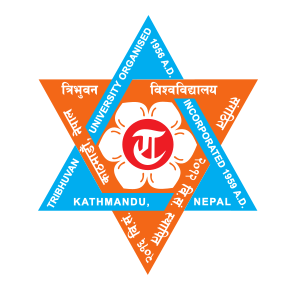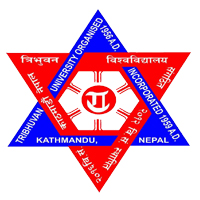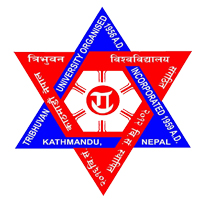Overview
The Central Department of Zoology at Tribhuvan University in Nepal was established in 1965 AD to advance the study and conservation of wildlife in the country. Led by the pioneering efforts of Professor Shiva Shankar Singh, the department has grown significantly over the years, attracting renowned faculty members such as Professor D. R. Uprety, Professor K. M. Bajracharya, Professor Y. K. Malla, Professor C. P. Gorkhali, and Professor J. Shrestha. The department's growth has been further enhanced through collaborations with visiting Professors from India under the Colombo Plan.
Producing Highly Skilled Zoologists
The Central Department of Zoology, Tribhuvan University (CBZ TU), has played a vital role in producing over a thousand highly skilled professionals in Zoology. These individuals have significantly contributed to various sectors within governmental and non-governmental institutions, including biodiversity conservation, wildlife management, and public health. The department takes pride in the accomplishments of its alumni, who continue to make valuable contributions to society.
Exploring Nepal's Rich Faunal Diversity
Nepal, often called the land of paradise for naturalists and explorers, offers countless unexplored areas and fields that still need investigation. In light of this, the CDZ recognizes the demand for sustainable use of natural resources, the conservation and management of wildlife, and the future threats posed by human activities to endangered species of plants and animals. These burning issues are central to the department's research agenda.
Specializations and Research Opportunities
The CDZ offers four major specializations at the M.Sc. level: Ecology, Entomology, Fish and Fisheries, and Parasitology. The department has also established Ph.D. programs and improved its research facilities. The syllabus for the M.Sc. program has been upgraded to be more practically feasible, ensuring students gain hands-on experience. The department takes pride in completing over 800 M.Sc. and 11 Ph.D. theses in Zoology.
Current Functions and Activities
The CDZ has reoriented its functions and activities to meet national demands and international standards. These include:
-
Producing skilled manpower in pure and applied zoology to meet the growing interest in animal sciences and environmental conservation.
-
Conducting field studies to explore and determine the faunal wealth of Nepal.
-
Researching to determine the status of faunal diversity.
-
Investigating wildlife ecology, behavior, and conservation biology.
-
Maintaining the Zoological Museum of Natural History and Economic Zoology for teaching and research.
-
Imparting training and research on the collection and preservation of animals.
-
Publishing research results in the form of journals and monographs.
-
Providing information and advisory services to governmental and non-governmental agencies.
-
Collaborating on joint research programs with scientists from SAARC and other countries.
-
Organizing short-term and long-term training workshops to enhance teaching and research in Zoology.
-
Hosting national and international conferences to facilitate knowledge exchange and collaboration.
Research and Collaboration
The CDZ conducts research in various fields of zoology, including General Zoology, Animal Ecology, Behavior, Biodiversity, fungi, Systematics, Parasitology, Ecology, Entomology, and Fish and Fisheries. Faculty members and students have been successful in securing research projects from esteemed national and international agencies, such as UGC, DNPWC, NTNC, CSWIN, BCN, ICIMOD, USAID, IFS, WWF, IUCN, RSPB, RUFFORD, Red Panda Network, Oriental Bird Club, and Birdlife International. The department actively collaborates with other departments and research organizations to further enhance their research efforts. Additionally, annual student educational excursions to different locations provide valuable support to research activities.
Nepal's Central Department of Zoology is a beacon of excellence in promoting zoological research, education, and conservation. With its dedicated faculty members, state-of-the-art facilities, and commitment to producing skilled professionals, the department contributes significantly to preserving Nepal's rich biodiversity and advancing zoological sciences.
Facilities
Departmental Library:
The department boasts a well-stocked library with over 1,500 books on various zoological topics. The collection includes textbooks, reference books, research theses, and journals on faunal diversity, biochemistry, ecology, entomology, parasitology, and more. This resource is valuable for students and faculty conducting research and accessing relevant literature.
Museum of Zoology:
Since its establishment, the department has maintained a Museum of Zoology, serving as a vital resource for teaching, demonstration, and research. The museum houses an extensive collection of faunal specimens, including invertebrates, freshwater fishes, amphibians, reptiles, birds, and mammals. It also holds embryological and histological slides, parasite slides, skeletons, models, and more. This museum allows for the study of the natural history of Nepalese fauna, encompassing morphology, anatomy, histology, taxonomy, and animal distribution. The Central Department Zoology Museum of Tribhuvan University (CDZMTU) houses reputable national collections, including several specimens cataloged and referenced in published international journals.
Information Technology:
The CDZ features well-equipped laboratories in a state-of-the-art building with sophisticated instruments and computer facilities. These facilities support a wide range of research activities and services. The laboratories are tailored to meet the needs of various disciplines within zoology, including fundamental labs, ecology and environment labs, entomology labs, fish biology and aquaculture labs, parasitology labs, and genomics and molecular biology labs. These spaces provide students and researchers with the necessary infrastructure for conducting practical classes and basic research.
Laboratory Equipment:
The CDZ is equipped with diverse laboratory instruments and equipment, catering to the requirements of practical classes and research endeavors. The available equipment includes microscopes, autoclaves, hemoglobin photometers, biological oxygen demand instruments, incubators, centrifuges, conductivity meters, digital balances, PCR machines, tissue homogenizers, UV transilluminators, and more. These instruments facilitate various activities such as histological analysis, immunological studies, DNA analysis, and water quality assessments. Additionally, field equipment such as air guns, altimeters, cameras, GPS devices, binoculars, and range finders support ecological fieldwork, faunal collection, and monitoring activities.
The Central Department of Zoology at Tribhuvan University provides students and researchers with a comprehensive range of facilities, including a well-stocked library, a museum housing valuable specimens, state-of-the-art laboratories with modern instruments, and a diverse array of laboratory and field equipment. These resources support the department's commitment to academic excellence, research, and the advancement of zoological sciences in Nepal.
Courses Offered:
MSc Zoology: The MSc Zoology program is a postgraduate degree focusing on advanced zoology studies. It aims to give students a comprehensive understanding of animal biology, ecology, evolution, physiology, taxonomy, and other related disciplines. The program typically includes a combination of coursework, laboratory work, field studies, and research projects. Students may be able to specialize in areas such as animal behavior, genetics, conservation biology, or marine biology.
PhD in Zoology: The PhD in Zoology is a research-oriented doctoral program that allows students to conduct in-depth investigations in specific areas of zoological research. The program is designed to develop students' research skills, critical thinking abilities, and expertise in a specialized area of zoology. Doctoral candidates are expected to carry out independent research under the guidance of a faculty supervisor and contribute to the existing body of knowledge in their chosen field. The duration of a PhD program can vary, but it typically takes several years to complete and culminates in the submission and defense of a doctoral thesis.
It's important to note that the specific courses and research opportunities within the MSc and PhD programs may vary from year to year based on faculty expertise and research focus areas. For the most accurate and detailed information, it is recommended to directly contact the Central Department of Zoology at Tribhuvan University or visit their official website for the latest curriculum and course offerings.















